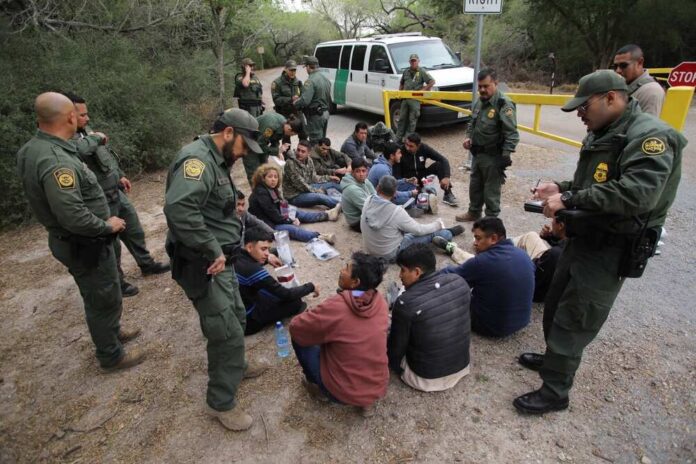
Tom Homan Challenges Democratic Governors on Immigration Enforcement and Deportation Policies In a bold move that has ignited controversy across the political spectrum, Tom Homan, newly appointed as “Border Czar” by President-elect Donald Trump, has issued a stark challenge to Democratic governors opposing the administration’s deportation initiatives.
Donald Trump has named Tom Homan as the “border czar” in his incoming administration, giving the former acting director of Immigration and Customs Enforcement charge over, among other responsibilities, “the southern border, the northern border, all maritime, and aviation… pic.twitter.com/2PUlPlDXB8
— PBS News (@NewsHour) November 12, 2024
Homan’s appointment signals a renewed focus on stringent immigration enforcement, with the former ICE Director set to lead what he describes as “the largest deportation force in U.S. history.” Homan’s message to resistant governors was unequivocal: “If they’re not willing to help, then get the hell out of the way because [Immigration and Customs Enforcement (ICE)] is going to do their job.”
Thomas Homan, Trump’s new “border czar" who oversaw his family-separation policy, promised “a hell of a lot more” deportations this time around.
Homan's message Dem governors: "If you are not going to help us, get the hell out of the way." https://t.co/OgKwwep2M1
— POLITICO (@politico) November 11, 2024
This confrontational stance has set the stage for a contentious battle between federal and state authorities over immigration policy. Massachusetts Governor Maura Healey exemplifies the opposition Homan faces, responding with a resolute “No, absolutely not” when asked about cooperation with mass deportation plans. Healey asserted, “Every tool in the toolbox has got to be used to protect our citizens,” highlighting the clash between state-level priorities and federal immigration objectives.
The administration’s strategy, as outlined by Homan, focuses on “targeted enforcement operations” rather than “massive raids,” with a priority on removing criminal aliens. However, the scale of the proposed operations has raised concerns about logistics and civil liberties.
Homan defends the administration’s approach, stating, “We have a mandate. I think the American people just gave President Trump a mandate. That’s why he’s elected — to secure the border, save lives and deport people, especially national security threats and public safety threats.” The appointment of Homan as Border Czar grants him significant influence over immigration and border policy without the formal constraints of a Cabinet position. This arrangement has sparked concerns about accountability and congressional oversight. Katherine Hawkins, an expert on government accountability, notes, “White House appointees are subject to less oversight than Cabinet and sub-Cabinet officials,” adding that it is “much harder for Congress to enforce subpoenas against White House officials.”
Critics, including the ACLU, anticipate Homan’s appointment will have significant anti-asylum and anti-immigrant implications. Lee Gelernt of the ACLU warns, “Homan’s lack of an agency position will not decrease his influence and may make it harder to have meaningful checks on his actions.” The administration’s immigration agenda, developed in part through Project 2025, a policy initiative by The Heritage Foundation, includes plans for mass deportations and restrictions on visa programs.
Trump has declared there is “no price tag” for national security, signaling a willingness to allocate substantial resources to these efforts. As the debate intensifies, the implementation of these policies faces logistical challenges and requires cooperation across various agencies and entities. The coming months are likely to see increased tension between federal immigration enforcement and state-level resistance, with Homan at the forefront of this contentious policy battleground.
President-elect Donald Trump named Tom Homan, his former acting U.S. Immigration and Customs Enforcement director, as "border czar" in his incoming administration.
STORY: https://t.co/9lkgjY45E2 pic.twitter.com/LSsXPro5Zm
— The National Desk (@TND) November 11, 2024














